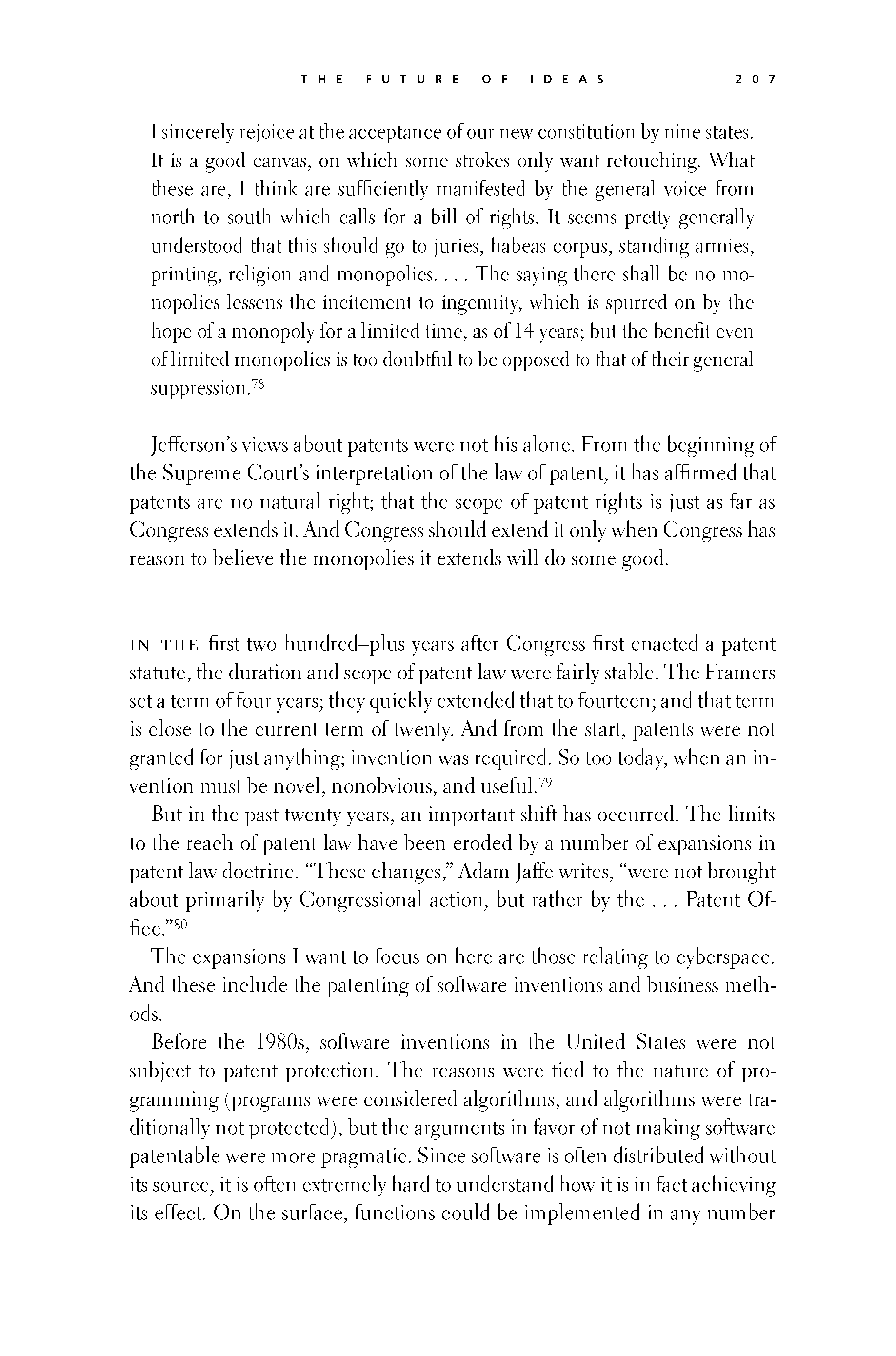 p206 _
-chap- _
toc-1 _
p207w _
toc-2 _
+chap+ _
p208
p206 _
-chap- _
toc-1 _
p207w _
toc-2 _
+chap+ _
p208
____ I sincerely rejoice at the acceptance of our new constitution by nine states.
____ It is a good canvas, on which some strokes only want retouching. What
____ these are, I think are sufficiently manifested by the general voice from
____ north to south which calls for a bill of rights. It seems pretty generally
____ understood that this should go to juries, habeas corpus, standing armies,
____ printing, religion and monopolies... The saying there shall be no mo-
____ nopolies lessens the incitement to ingenuity, which is spurred on by the
____ hope of a monopoly for a limited time, as of 14 years; but the benefit even
____ of limited monopolies is too doubtful to be opposed to that of their general
____ suppression.[11-78]
Jefferson's views about patents were not his alone. From the beginning of
the Supreme Court's interpretation of the law of patent, it has affirmed that
patents are no natural right; that the scope of patent rights is just as far as
Congress extends it. And Congress should extend it only when Congress has
reason to believe the monopolies it extends will do some good.
///\\\
In the first two hundred-plus years after Congress first enacted a patent
statute, the duration and scope of patent law were fairly stable. The Framers
set a term of four years; they quickly extended that to fourteen; and that term
is close to the current term of twenty. And from the start, patents were not
granted for just anything; invention was required. So too today, when an in-
vention must be novel, nonobvious, and useful.[11-79]
But in the past twenty years, an important shift has occurred. The limits
to the reach of patent law have been eroded by a number of expansions in
patent law doctrine. "These changes," Adam Jaffe writes, "were not brought
about primarily by Congressional action, but rather by the... Patent Of-
fice."[11-80]
The expansions I want to focus on here are those relating to cyberspace.
And these include the patenting of software inventions and business meth-
ods.
Before the 1980s, software inventions in the United States were not
subject to patent protection. The reasons were tied to the nature of pro-
gramming (programs were considered algorithms, and algorithms were tra-
ditionally not protected), but the arguments in favor of not making software
patentable were more pragmatic. Since software is often distributed without
its source, it is often extremely hard to understand how it is in fact achieving
its effect. On the surface, functions could be implemented in any number
[[207]]
p206 _
-chap- _
toc-1 _
p207w _
toc-2 _
+chap+ _
p208